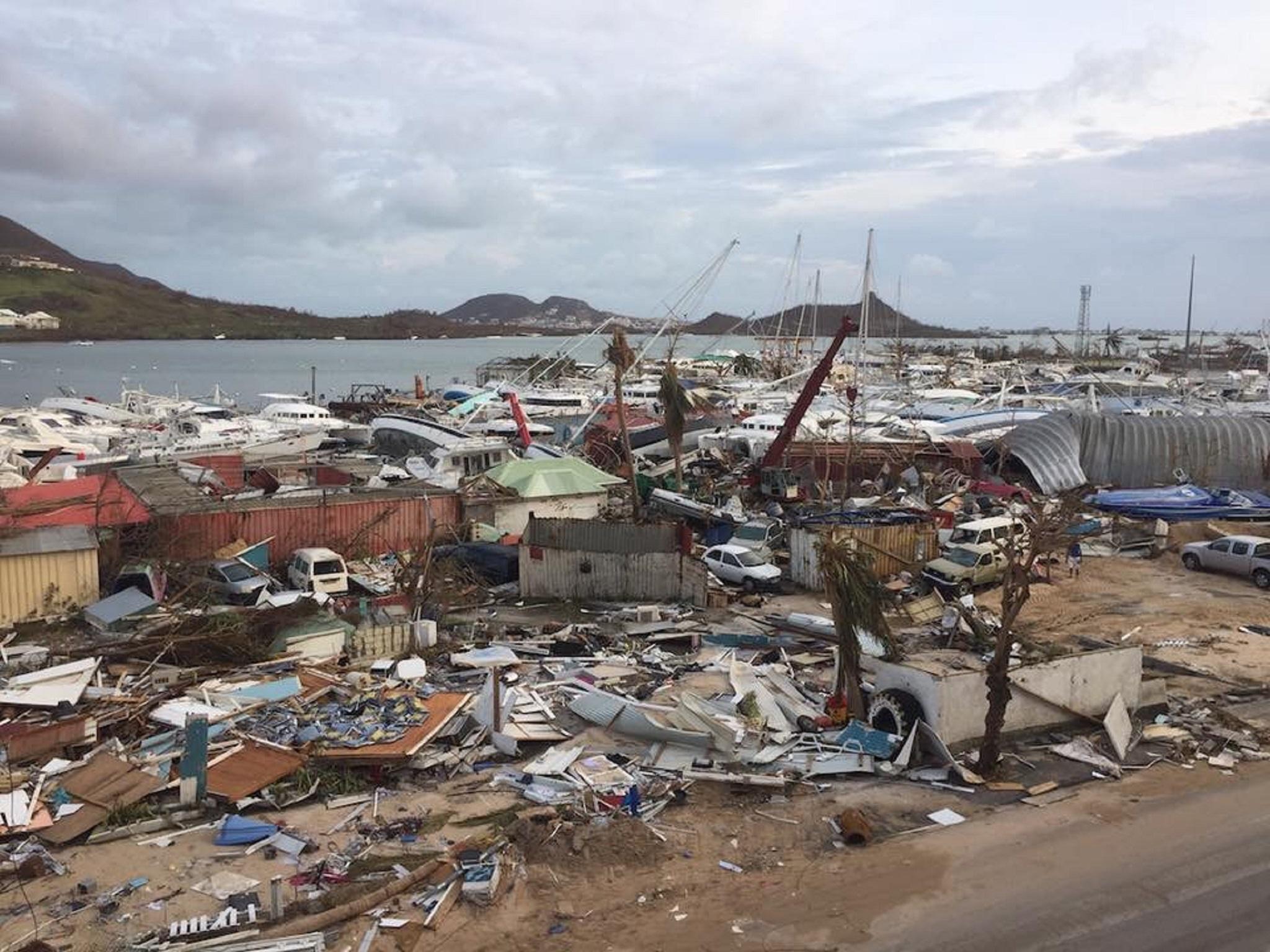The Independent's journalism is supported by our readers. When you purchase through links on our site, we may earn commission.
International aid rules are rigged against Caribbean countries – which is why Barbuda won't be getting aid from the UK
It is a cruelty made particularly bitter by the fact that the climate change fuelling these mega-hurricanes is the product largely of the same industrialised nations that run the OECD and set the aid rules

Your support helps us to tell the story
From reproductive rights to climate change to Big Tech, The Independent is on the ground when the story is developing. Whether it's investigating the financials of Elon Musk's pro-Trump PAC or producing our latest documentary, 'The A Word', which shines a light on the American women fighting for reproductive rights, we know how important it is to parse out the facts from the messaging.
At such a critical moment in US history, we need reporters on the ground. Your donation allows us to keep sending journalists to speak to both sides of the story.
The Independent is trusted by Americans across the entire political spectrum. And unlike many other quality news outlets, we choose not to lock Americans out of our reporting and analysis with paywalls. We believe quality journalism should be available to everyone, paid for by those who can afford it.
Your support makes all the difference.“Barbuda now is literally rubble.” So said its Prime Minister Gaston Browne in the aftermath of hurricane Irma. There is no electricity, water and 95 per cent of buildings have been damaged. The island is desolate and empty after a forced evacuation. For the first time since the 18th century there is no human person legally living on the island. “Over 300 years of human habitation has been abruptly interrupted,” said former Prime Minister Lester Bird. “That must not be the fate of our island communities. Our heritage, our civilization, our identity depends on it.”
Dominica, a neighbouring small-island Caribbean state, has a fragile economy at the best of times. A single tropical storm, such as Erika in 2015, can devastate its economy – sparking landslides and flooding that caused $483m dollars in damage, equivalent to 90 per cent of the island’s GDP. Hurricane Maria is estimated to have caused far greater damage.
Both of these countries, Dominica and the twin-island nation of Antigua and Barbuda sound like prime candidates for international aid. And yet, according to the rules set by the Organisation for Economic Co-operation and Development (OECD), an obscure rich countries’ club based in opulent surroundings in Paris, they are considered too rich to qualify for most aid grants.
Indeed, with impeccable timing, Antigua and Barbuda is due to be taken off the OECD’s list of aid-eligible countries this year. It will find itself in the same position as St Kitts and Nevis and British territories such as Anguilla, denied aid even as they face the massive costs of rebuilding their countries.
OECD members class aid as “Official Development Assistance” (ODA) when granted to countries with a gross national income (GNI) per capita of under $12,745 in 2013. If the UK grants aid to a country with a higher income per capita, it won’t qualify as ODA and will be subtracted from the cherished 0.7 per cent of GDP aid target.
It’s easy to see the flaws in such a system: a country with vast numbers of poor people and a few very rich will have a high GNI per capita (notably, Brazil). If aid is about helping those in need, this arbitrary measure ensures that many of the neediest are ignored.
For the small states of the Caribbean, the system is even less satisfactory. Brazil, with its huge economy and population of 200 million, cannot rationally be in the same category as Dominica, whose entire economy can be obliterated in a single storm.
In the aftermath of these terrifying hurricanes, it is a cruelty made particularly bitter by the fact that the climate change fuelling these mega-hurricanes is the product largely of the same industrialised nations that run the OECD and set the aid rules. The vulnerability of small states, whether in the Caribbean or Pacific, is not in doubt. But the ODA system ignores this.
The British government claims it wants to change these rules, although in 2014, when the Caribbean countries requested UK support for a change, they were given short shrift by then-DFID minister Alan Duncan (I know this because at the time I was British High Commissioner to Trinidad and Tobago).
Boris Johnson and Priti Patel, both vociferous Brexiteers pushing the idea that Britain can go it alone in the world, could easily make a virtue of this opportunity to do the right thing and ignore the OECD’s arcane rules. To decide not to, whilst blaming an obscure international agency, smacks of convenient excuses.
Arthur Snell was British High Commissioner to Trinidad and Tobago 2011 - 2014
Join our commenting forum
Join thought-provoking conversations, follow other Independent readers and see their replies
Comments